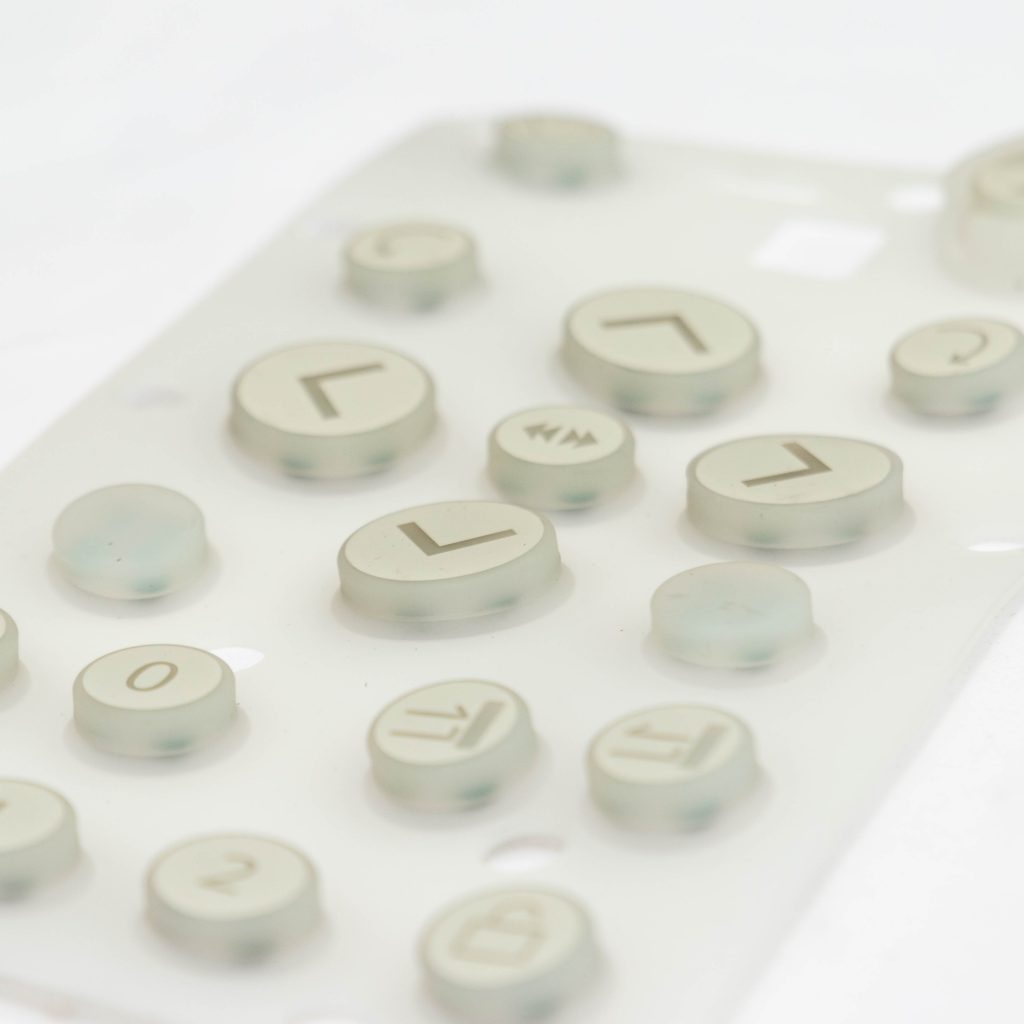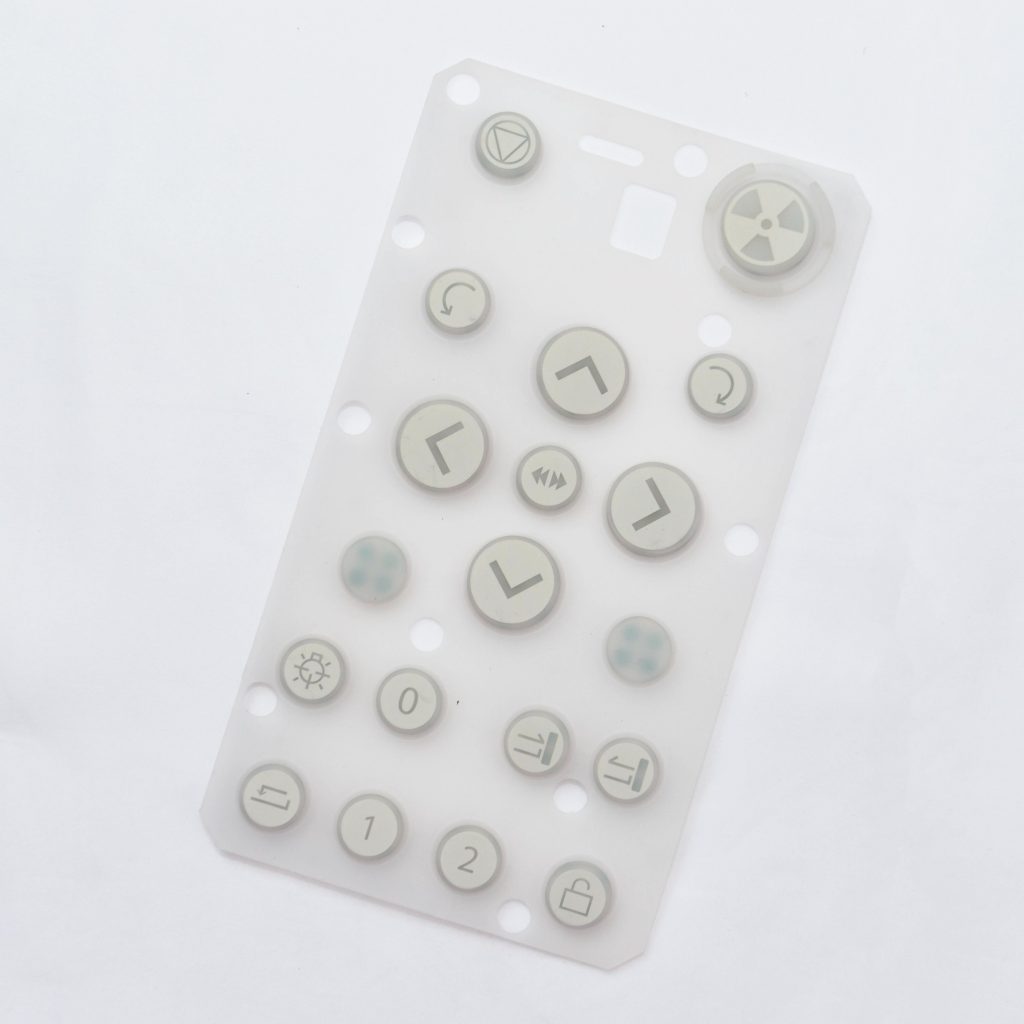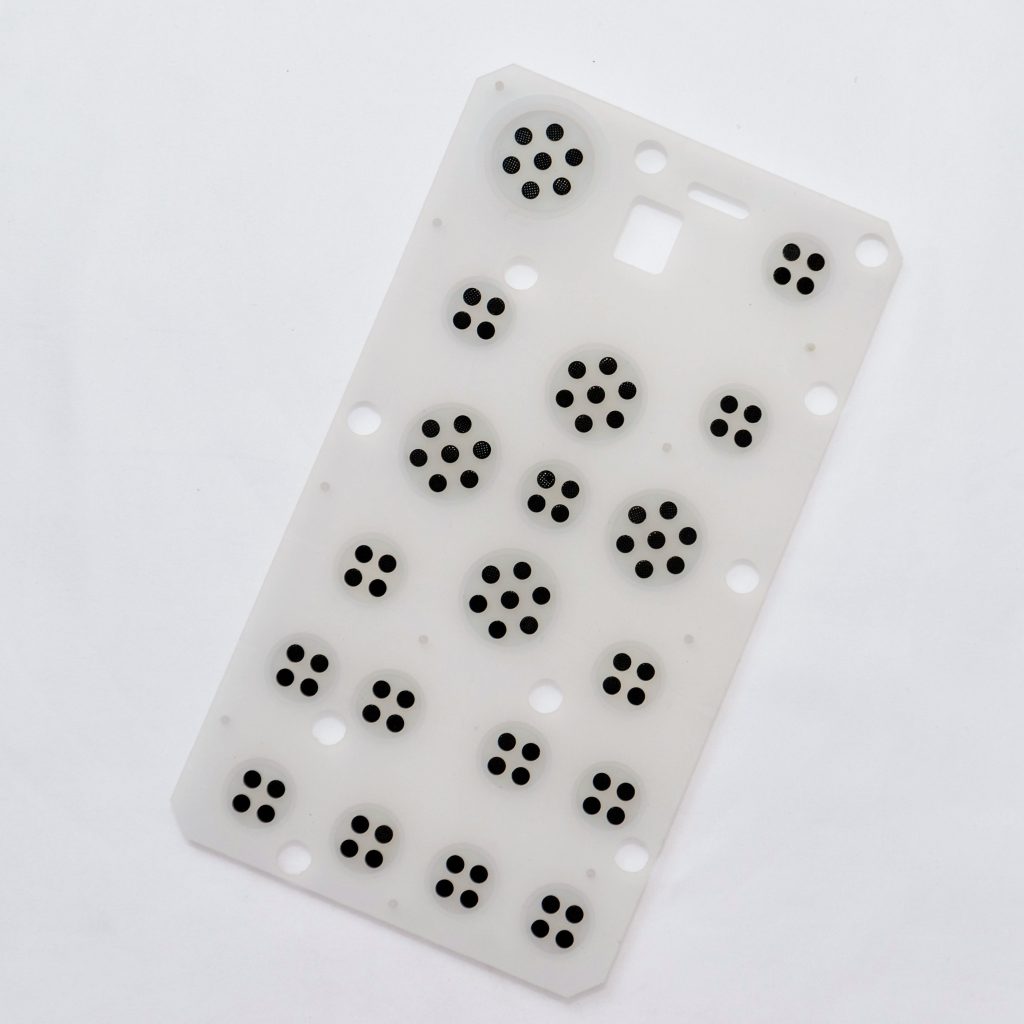Contact
Write to Us And We Would Be Happy to Advise You.
Do you have any questions, or would you like to speak directly with a representative?
By hqt
As we progress in this age of technology, the use of silicone rubber keypads continues to increase in popularity. This is due to its unique qualities such as durability, flexibility, and resistance to various environmental factors. However, like any other material, there are certain chemicals that silicone rubber keypads are afraid of. In this article, we’ll discuss in detail what type of harsh chemicals silicone rubber keypads are afraid of and why.



Before we delve into what type of harsh chemicals silicone rubber keypads are afraid of, let’s first define what a silicone rubber keypad is. A silicone rubber keypad is a type of input device commonly used in electronic equipment. It is a rubber button that is used to make contact with an underlying circuit board. The button is usually made of silicone rubber due to its unique properties such as flexibility, durability, and resistance to environmental factors.
Silicone rubber keypads are commonly used in electronic devices such as remote controls, calculators, medical equipment, and automotive electronics. Due to their widespread use, it is essential to understand what type of harsh chemicals these keypads are afraid of.
Alkaline Chemicals
Silicone rubber keypads are afraid of alkaline chemicals. These chemicals are commonly found in cleaning agents and can cause the rubber keypad to become brittle, leading to cracks and other damages. Examples of alkaline chemicals include ammonia and sodium hydroxide.
Acidic Chemicals
Silicone rubber keypads are also afraid of acidic chemicals. These chemicals can also cause the rubber to become brittle, leading to cracks and other damages. Examples of acidic chemicals include hydrochloric acid and sulfuric acid.
Aromatic Hydrocarbons
Aromatic hydrocarbons are chemicals that contain a ring of carbon atoms. Silicone rubber keypads are afraid of these chemicals because they can cause the rubber to swell and soften. This can lead to the keypad losing its tactile feel and eventually becoming useless. Examples of aromatic hydrocarbons include benzene and toluene.
Halogenated Hydrocarbons
Silicone rubber keypads are afraid of halogenated hydrocarbons. These are chemicals that contain a halogen atom, such as chlorine or fluorine. Halogenated hydrocarbons can cause the rubber to swell and become soft, leading to the keypad losing its tactile feel. Examples of halogenated hydrocarbons include dichloromethane and chloroform.
UV Light
Silicone rubber keypads are also afraid of UV light. UV light can cause the rubber to become brittle and crack. This can lead to the keypad losing its tactile feel and eventually becoming useless.
Silicone rubber keypads have unique properties that make them resistant to harsh chemicals. These properties include:
Resistance to High Temperatures
Silicone rubber keypads can withstand high temperatures, making them resistant to chemicals that are temperature-sensitive.
Resistance to Environmental Factors
Silicone rubber keypads are resistant to environmental factors such as humidity, UV light, and ozone. This makes them ideal for use in electronic equipment that is exposed to different environmental factors.
Resistance to Water
Silicone rubber keypads are resistant to water, making them ideal for use in applications where water exposure is expected.
Chemical Stability
Silicone rubber keypads have excellent chemical stability, which makes them resistant to a wide range of harsh chemicals.
Durability
Silicone rubber keypads are durable, and they can withstand repeated use without losing their tactile feel.
How do I clean my silicone rubber keypad?
It is recommended to clean silicone rubber keypads with a mild detergent and a soft cloth. Avoid using harsh chemicals, as they can damage the keypad.
Can I use a silicone rubber keypad in outdoor applications?
Yes, silicone rubber keypads are resistant to environmental factors such as UV light and humidity, making them ideal for outdoor applications.
Can I use a silicone rubber keypad in applications where it will be exposed to chemicals?
Silicone rubber keypads are resistant to a wide range of harsh chemicals, making them ideal for use in applications where they will be exposed to chemicals.
Can a silicone rubber keypad withstand high temperatures?
Yes, silicone rubber keypads are resistant to high temperatures and can withstand temperatures up to 200°C.
Are silicone rubber keypads expensive?
Silicone rubber keypads are cost-effective, making them an ideal choice for various applications.
Silicone rubber keypads are widely used in electronic equipment due to their unique properties such as durability, flexibility, and resistance to environmental factors. While they are resistant to a wide range of harsh chemicals, there are certain chemicals that they are afraid of, such as alkaline and acidic chemicals, aromatic hydrocarbons, halogenated hydrocarbons, and UV light. It is essential to avoid exposing silicone rubber keypads to these chemicals to ensure their longevity and functionality.
In conclusion, silicone rubber keypads are an excellent choice for various applications due to their unique properties. They are resistant to a wide range of environmental factors, making them ideal for use in outdoor applications. With proper care and maintenance, silicone rubber keypads can last for many years without losing their tactile feel.
Do you have any questions, or would you like to speak directly with a representative?